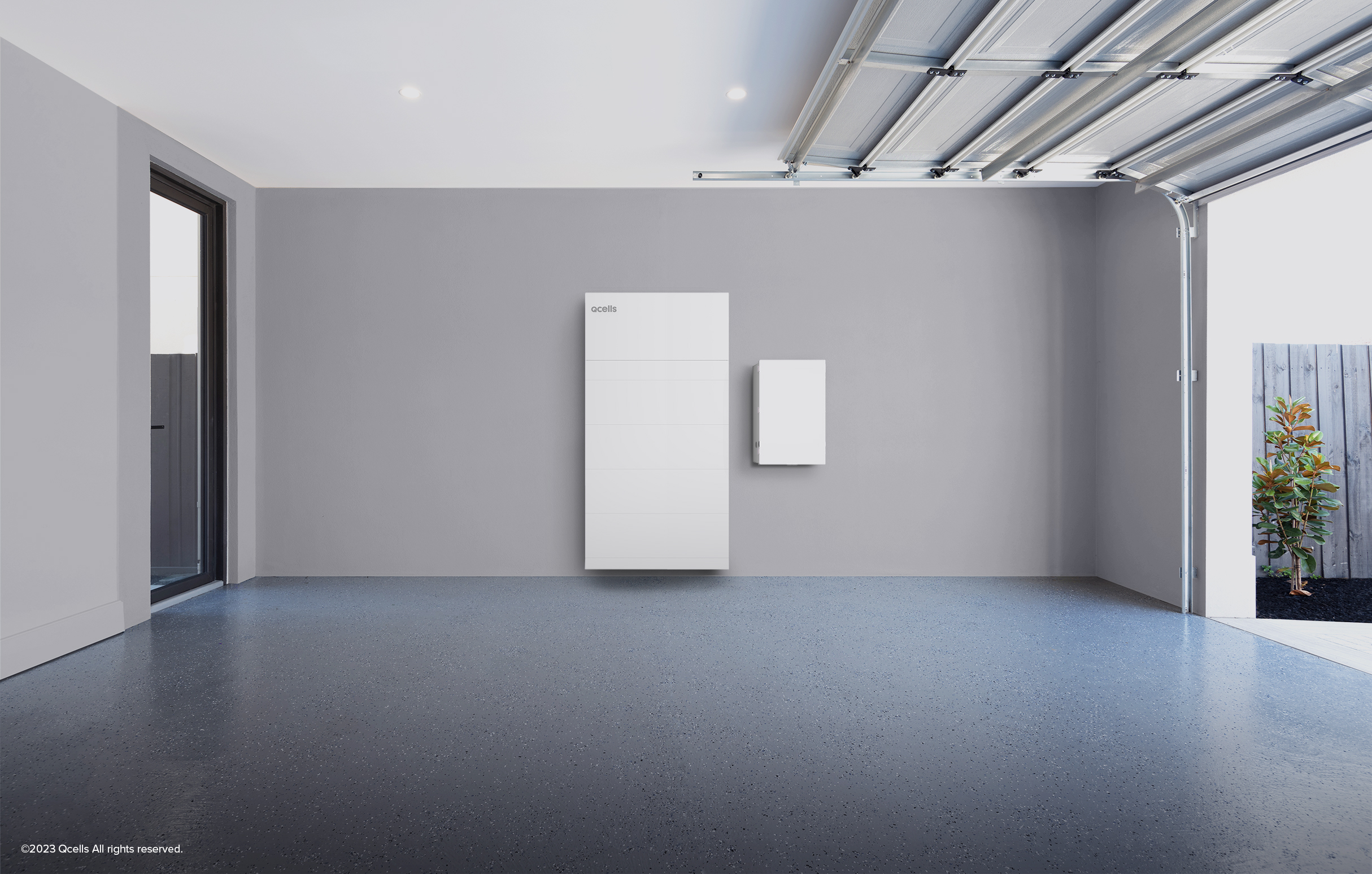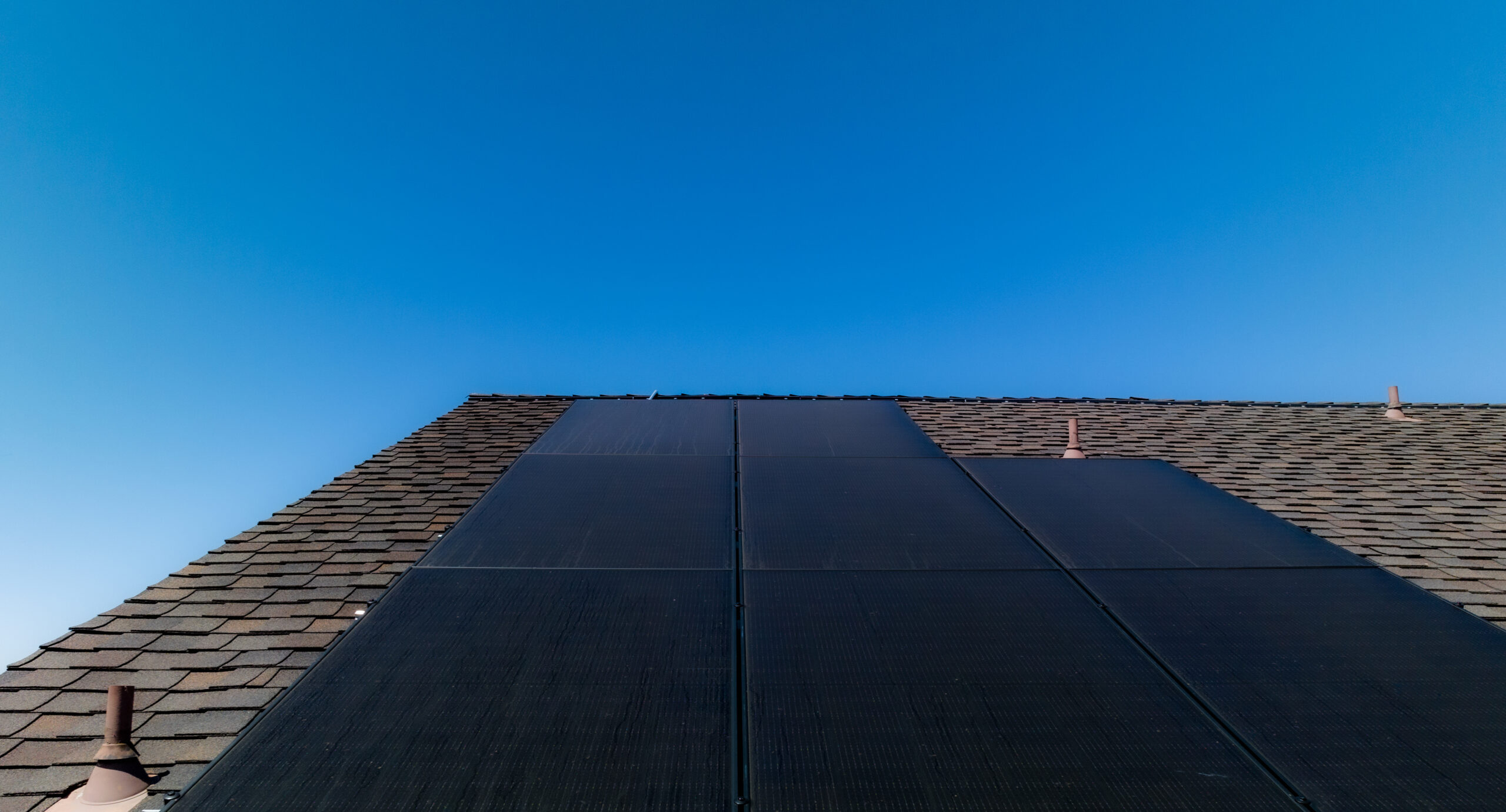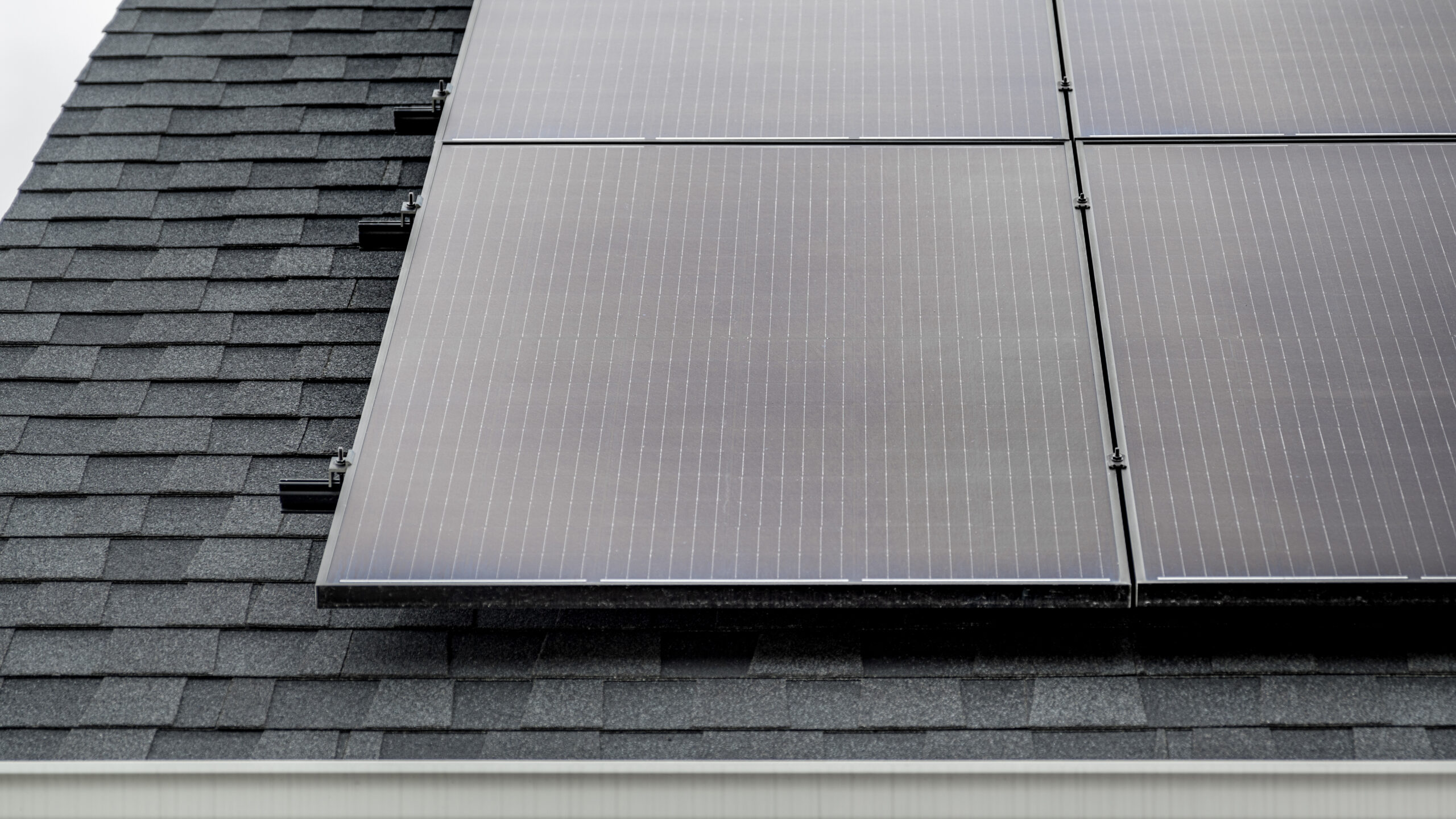A solar battery is an increasingly important addition to a solar system, enabling system owners to more proactively and flexibly manage their solar energy consumption patterns, thereby helping to further reduce electricity bills and lower their dependence on the grid.
What Are Solar Batteries?
A solar battery, also commonly referred to as a solar energy storage system, is a battery unit that can be paired with a solar system. It enables system owners to store their solar electricity at their home or premises, and draw on that energy for consumption at a later time. Solar energy that is generated during daylight hours might not always be immediately consumed – particularly in residential solar systems when the homeowners are away from home during the day and usage is higher during nighttime hours. That solar energy can be stored in a solar battery, and then consumed, or discharged, by the system owner in the evening, at night, or simply at a time that is best suited to their needs – such as times of increased energy demand on the grid, which pushes cost per kilowatt higher.
How Does a Solar Battery Work?
Solar batteries contain battery cells that are capable of ‘charging’ with electricity. They retain this electricity safely until they are ‘discharged’. A solar battery can therefore receive excess solar energy from solar panels. This excess energy is fed from the solar panels through the solar inverter(s), whereby it is converted from direct current (DC) to alternating current (AC) and stored in the battery. System owners can then use a smartphone app to manage how they consume that energy (if equipped with monitoring system). Sometimes, a premises can be taken completely off-grid with a solar + storage system; the home or property is able to generate all of its energy needs with the solar system. Alternatively, a hybrid solar system remains connected to the grid and offers the system owner the flexibility of deciding from where to draw their energy: from the grid if the battery is empty, for example, or from the battery if grid prices are high. System owners who live in a region of the country that operates a net metering program can also send stored energy from their battery into the grid and receive energy credits for that electricity.
Solar Battery Types
Within the solar space, there are typically four types of battery technology used for storing solar electricity. The most common is lithium-ion, which is a battery technology that Qcells uses for its Q.HOME CORE system. Other types of solar battery technology include lead-acid, nickel cadmium, and flow batteries.
Lithium-ion Batteries
Lithium-ion batteries are among the most affordable, durable and safest form of battery technology for solar systems. This technology is relatively new and provides high energy density in a smaller space – making it an ideal solution for home storage systems: not only in terms of space-saving, but also with the frequency and speed at which the lithium-ion cells can be charged and discharged.
Other Types of Battery Technology
Nickel-cadmium batteries are most often used in aviation and industrial applications due to their tolerance for extreme temperatures. They are not often found in residential solar + storage settings. Flow batteries provide a very high efficiency of charge thanks to their chemical makeup of liquid-containing electrolytes that flit between two chambers inside a battery. These types of batteries are more often used at large-scale storage, for example, collocated with a ground-mounted solar system. Lead-acid batteries, meanwhile, are affordable and rather common across many industries, such as the automotive industry. While they do not hold a great deal of energy per kg of weight, they are sometimes an effective choice for home solar systems thanks to their reliability and affordability.
What to Consider When Choosing a Battery
The most important factor to take into consideration when choosing a solar battery for your solar system is size and scaling. You want your battery to be capable of handling all of the solar electricity generated by your solar system, so that nothing is wasted. You should also consider the bankability of the battery manufacturer, the warranty offered, and the software management system that accompanies it – a battery is only as good as the interface that lets you, the system owner, manage it.
Battery Capacity
When selecting a solar battery, you should first know the size of your installed, or planned, solar system. A solar battery’s capacity denotes the amount of energy it can store at any time, expressed as kilowatt-hours (kWh). A larger kWh capacity can therefore store larger amounts of solar energy. Most reputable battery manufacturers for solar systems will offer a scalable battery system: that is, the solar battery can be offered at sizes ranging from 2-3 kWh, up to even 20 kWh. Most home solar systems will be less than 20 KWh, so these scales should be sufficient. You can of course select a battery with a smaller capacity than the size of your solar system. It will mean that the power output in the battery will be lower, but that may be enough to meet your energy usage needs. A professional installer will be able to assist you to determine the adequate battery size for your specific needs. One should also bear in mind safety testing and regulatory compliance certifications as key decision factors.
AC Coupling vs DC Coupling
Any solar battery will either be AC- or DC-coupled. What does that mean? It all refers to how the solar electricity makes its way to the battery. DC – direct current – offers higher efficiency and simplicity: a battery will contain an internal inverter to convert the DC into AC. However, if you wish to install a solar battery to an existing solar system, you need AC-coupling; in other words, the battery will connect to the pre-existing inverter, and therefore will draw AC – alternative current – electricity from the inverter to store inside the battery.
Solar Battery Warranty
A longer warranty will usually mean that the manufacturer has great confidence in the reliability and durability of its solar battery. Most reputable manufacturers will offer a warranty of at least 10 years, but it can be expected that the battery will perform well beyond that.
When Choosing a Solar Battery
Residential solar systems work perfectly well without storage. They can lower bills, increase energy independence, and lower one’s carbon footprint. However, with the increase of more affordable and reliable solar battery technology, pairing solar + storage in the home is an increasingly popular choice. Solar batteries provide your solar system with excellent support in terms of storing excess energy, offering greater flexibility in energy consumption, lowering bills and generally giving you greater control. Solar battery systems currently have a longer ROI than solar panels, so there is an initial extra cost consideration to bear in mind, however in the long term, a solar + storage system can be a cost-effective option.
Advantages of a Solar Battery
Solar batteries provide backup power during outages; the flexibility to consume stored energy during times of high grid prices; easier energy monitoring; less dependence on the grid, and an overall greater sense of energy independence and control. It can also allow homeowners to participate in new revenue streams offered by Grid Operators, often called Virtual Power Plant’s (VPP’s) where the Grid draws power from the homeowner’s battery at times where the Grid has excess demand. In this manner, the Grid Operator can aggregate many residential battery sites and treat them as a single source of power.
Disadvantages of a Solar Battery
There are no inherent disadvantages of installing a solar battery. Yes, there are additional cost considerations, and solar batteries may require a certain degree of maintenance, however after taking everything into consideration, the pros significantly outweigh the cons.
Contact Us
If you are interested in installing a Qcells battery system in your home or have questions about solar energy, our team is here to help. We are dedicated to developing high-quality solar + energy storage solutions, and delivering exceptional customer service because we understand the importance of switching to clean energy and how it can positively impact the environment.
Feel free to browse our complete solar energy solutions, including solar panels, home energy storage, and energy management, or contact us to discuss designing and installing a customized home solar panel system. You can also contact Qcells for any solar questions you may have.





 USA & Canada
USA & Canada Korea
Korea Germany
Germany United Kingdom
United Kingdom France
France Italy
Italy Netherlands
Netherlands Greece
Greece Poland
Poland Portugal
Portugal Hungary
Hungary Spain
Spain Japan
Japan